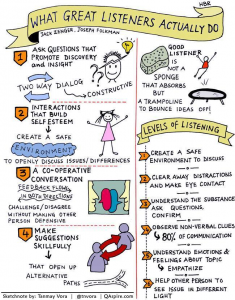1.Quality housing services make a huge contribution to community resilience.
A combination of higher living costs and lower benefits are putting normal life out of reach for thousands of social housing tenants. Unsurprisingly we’re also seeing an across the board increase in mental health issues. Raising awareness of very simple resilience building steps can make a real difference to how well your tenants approach change and cope with challenges.
2.The well-being of tenants is critical to a healthy and economically sound environment.
is critical to a healthy and economically sound environment.
Lifestyle choices, relationships and personal histories all impact the way we feel about work. Embrace Resilience and Wellbeing modules are packed with easy to absorb information which supports productive working lives and economically viable neighbourhoods.

3. Healthy Communities are Sustainable Communities.
Helping people to stop smoking or think about their drug and alcohol use, weight loss, nutrition, exercise and mental health management makes a big contribution to community resilience.
Embrace gift a certain number of Resilience and Wellbeing e-learning modules to nominated communities every month.
Go to https://embraceresilience.com/free-courses-residents/ for more information and use the response form below to tell us about groups near you.
 4. Improved employment opportunities depend on improved health outcomes.
4. Improved employment opportunities depend on improved health outcomes.
Support fuller working lives by providing families affected by illness or disability with realistic insights and new coping strategies.
E-learning modules which provide need-to-know info about health conditions and suggest helpful ideas about care and pain management can make a huge difference to people living with illness or caring for family members.
5.Encouraging individuals to tap into their talents is a great way to build community engagement.
Embrace and Forever Manchester have co-designed an Asset Based Community Development module focusing on whats right rather than whats wrong in community settings, the course gradually turns beginners into fully fledged ABCD practitioners, with all the skills required to recruit, coordinate and sustain community projects.
The module works equally well for professional or community engagement. The material is easy to follow and highly interactive.






 Every Family has an impact on the community they live in.
Every Family has an impact on the community they live in.
 practised conversationalists than great listeners.
practised conversationalists than great listeners.
 If you rely on another person to make you happy they will disappoint you, every time.
If you rely on another person to make you happy they will disappoint you, every time. blems rarely get easier with time.
blems rarely get easier with time.






 Even one insignificant CV gap can psychologically overshadow 100 amazing transferable skills. Make your training proposition as visible as possible to attract candidates who are keen to learn and hope to spend years becoming more and more valuable to your organisation.
Even one insignificant CV gap can psychologically overshadow 100 amazing transferable skills. Make your training proposition as visible as possible to attract candidates who are keen to learn and hope to spend years becoming more and more valuable to your organisation.



 Views on the value of older workers vary dramatically amongst employers. Some argue that older workers cost their business more and offer less. Not true. Apart from a few high-end professional positions, average wages for women peak in their late 30’s (late 40’s for men). Meaning that despite many additional years of valuable experience we actually get cheaper with age.
Views on the value of older workers vary dramatically amongst employers. Some argue that older workers cost their business more and offer less. Not true. Apart from a few high-end professional positions, average wages for women peak in their late 30’s (late 40’s for men). Meaning that despite many additional years of valuable experience we actually get cheaper with age.
 Years of work experience add up, and hindsight is at its most useful when used to inform process. Older workers have a greater grasp of efficiency – and the confidence that comes from knowing (rather than guessing) what works, means they’re likely to feel very comfortable sharing their ideas with management.
Years of work experience add up, and hindsight is at its most useful when used to inform process. Older workers have a greater grasp of efficiency – and the confidence that comes from knowing (rather than guessing) what works, means they’re likely to feel very comfortable sharing their ideas with management.


